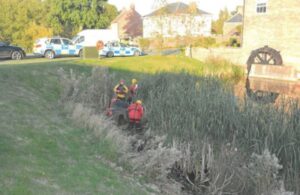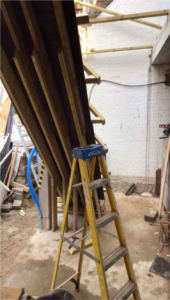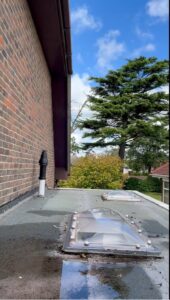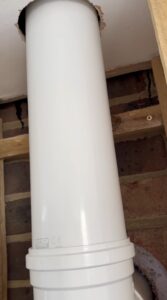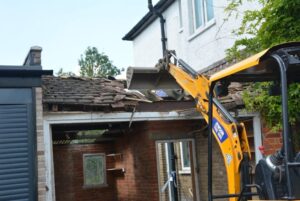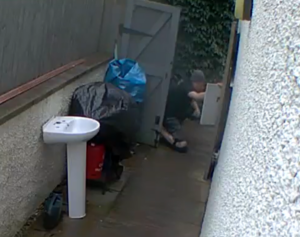Police force fined after student officer hit by car on Christmas Eve
- The student officer had been responding to a traffic collision.
- HSE investigation found West Mercia Police failed to manage risks.
- Force failed to provide suitable information and training to its officers.
A police force has been fined after one of its officers was hit by a passing car while responding to a traffic collision on Christmas Eve.
The 22-year-old was a student officer working for West Mercia Police when the incident happened on 24 December 2023. The officer had been responding to the traffic collision in Bridgnorth, Shropshire. That collision occurred on a single carriageway road that had no street lighting and where the national speed limit for the road was 60 mph.
The officer had been stood on a bend, managing traffic at the scene when he was hit by a passing car. He sustained life-threatening and life-changing injuries.
An investigation by the Health and Safety Executive (HSE) found that West Mercia Police failed to do all that was reasonably practicable to manage the risks arising from or in connection with traffic collisions. The force’s risk assessments were not suitable and sufficient and it failed to provide adequate equipment for safely responding to traffic collisions.
There was also a lack of suitable information, instruction and training for its officers. As a result, employees and members of the public were exposed to unnecessary risks.
In June 2021, the National Police Chiefs’ Council (NPCC) sent all police forces across the UK a series of recommendation reports which provided relevant advice explaining how to implement road safety recommendations following an officer and staff safety review report.
The Office of Chief Constable West Mercia Police, Headquarters, Hindlip Hall, Hindlip, Worcester, pleaded guilty to breaching Sections 2(1) and 3(1) of the Health and Safety at Work etc. Act 1974. The force was fined £85,800 and ordered to pay £9,402 in costs at Birmingham Magistrates Court on 20 February 2026.
HSE Inspector Keeley Eves said:
“We recognise that police officers inevitably face significant and serious dangers as part of their normal work. The nature of policing is such that even where all reasonably practicable steps have been taken to minimise the risks, there may still be a significant risk to those engaged in such work.
“However, police officers should not be exposed to unnecessary risks while keeping the public safe.
“In this case, West Mercia Police failed to implement all reasonably practicable measures to minimise risks to its employees and members of the public in connection with road traffic collisions.
“Tragically, this resulted in a student police officer sustaining life changing injuries.
“After the incident, the force implemented significant changes, which included revisions to risk assessments, policies, procedures, equipment and training.
“These measures should have been in place prior to the incident.”
This HSE prosecution was brought by enforcement lawyer Edward Parton and paralegal officer Lynne Thomas.
Further information:
- The Health and Safety Executive (HSE) is Britain’s national regulator for workplace health and safety. We are dedicated to protecting people and places, and helping everyone lead safer and healthier lives.
- More information about the legislation referred to in this case is available.
- Further details on the latest HSE news releases is available.
- Relevant guidance can be found here: Managing risks and risk assessment at work: Overview – HSE
- HSE does not pass sentences, set guidelines or collect any fines imposed. Relevant sentencing guidelines must be followed unless the court is satisfied that it would be contrary to the interests of justice to do so. The sentencing guidelines for health and safety offences can be found here.
